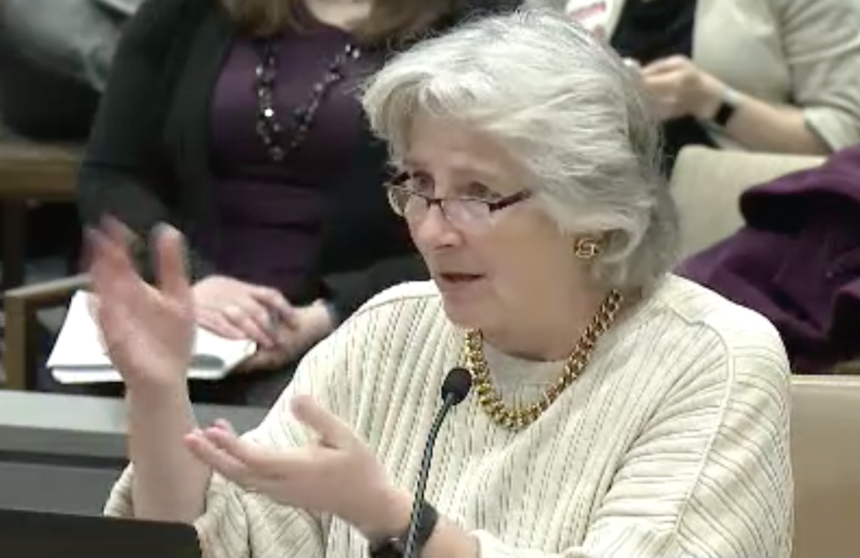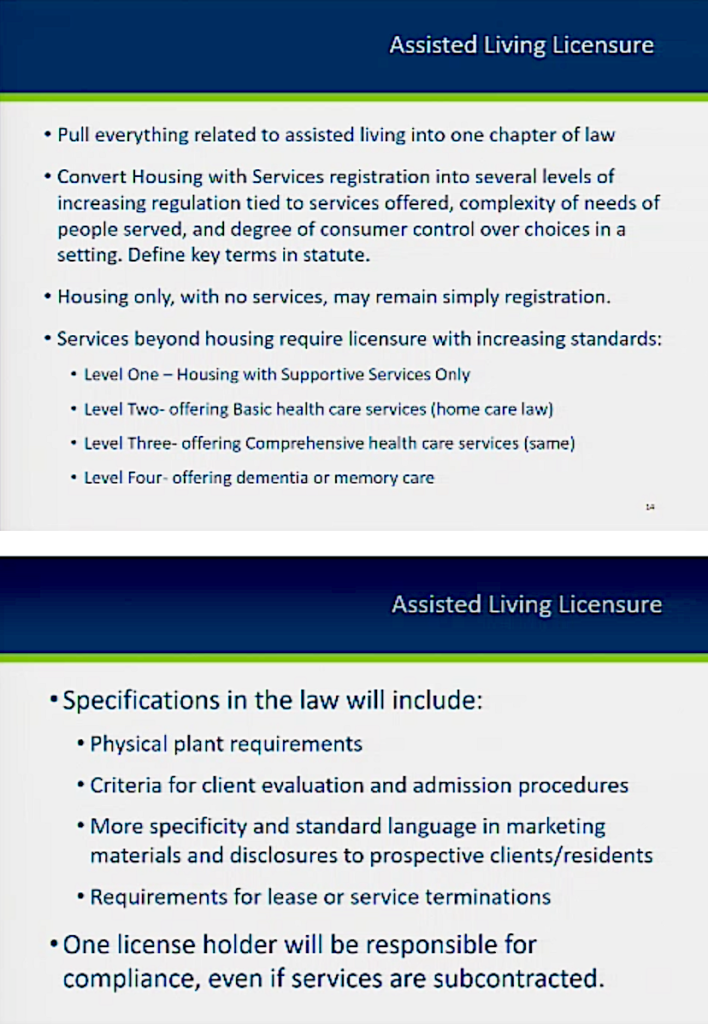
Assisted living communities in Minnesota would be licensed via a new multi-tiered system under a proposal that state Health Commissioner Jan Malcolm shared during a state senate hearing last week.

Draft language of a bill that would establish assisted living licensure should be ready in February, she said. The proposal has the backing of two organizations representing providers in the state.
If passed, Minnesota reportedly would become the last state to license assisted living settings. Current state law classifies assisted living communities, where more than 60,000 state residents live, as “housing with services” and requires registration instead of licensure.
“We need to … create higher levels of regulation, including licensure, tied to the complexity of the services that are offered in those settings and the complexity of need,” Malcolm told the state Senate Committee on Family Care and Aging on Jan. 23.
Under the Department of Health proposal, a registration system might remain in place for providers of housing without services. A four-level licensing system would be implemented, however, for communities offering housing with supportive services only, providing basic healthcare services, offering comprehensive healthcare services, or providing memory care.
Specifications in the law would cover physical plant requirements, criteria for client evaluation and admissions procedures, standard language for marketing materials and disclosures to prospective residents, and requirements for lease or service terminations.
This time, provider input
Unlike changes proposed last year, which were vetoed by then-Gov. Mark Dayton, this year’s proposed changes were developed with input from providers, regulators, consumers and policymakers, LeadingAge Minnesota President and CEO Gayle Kvenvold told McKnight’s Senior Living. Work group discussions about assisted living and other matters related to quality and safety occurred from August to December, she added.
“Our early work was around identifying what we wanted to preserve around our current framework for assisted living, and a big piece of that was the opportunity for seniors to age in place and to have a very person-centered model, but balancing that with the need for quality and safety and protection of vulnerable populations,” she said. LeadingAge Minnesota also is an Argentum state partner.
Care Providers of Minnesota, the state affiliate of the American Health Care Association / National Center for Assisted Living, also participated in the discussions. The organization’s president and CEO, Patti Cullen, told McKnight’s Senior Living that the process was educational for all involved — “for providers to understand the perspective of families and consumers, and for the consumer groups to understand operationally what we currently do.
“There was a lot of either misinformation or just, frankly, no information. They didn’t have full knowledge of our current regulatory structure and some of the current things that were in place but just were not being enforced,” she added.
Cullen predicted that a basic framework for licensure would be passed this legislative session, with some of the details finalized during the next legislative session.
“The most important thing is to make sure that there continues to be dialogue and understanding of perspectives,” she said. “Our leadership in both the House and Senate have been involved in meetings, and I think they’ve said it quite well that we need to do something. We need to do something that makes sense, and everyone’s not going to win, but that’s kind of how the legislative process works. Everyone is not going to win everything they want, and we’re all ready for that.”
Kvenvold agreed.
“Although we still have areas of detail yet to be worked out … we are at the table talking, and I believe consensus will, in fact, emerge,” she said.
“Where the ‘rubber will meet the road,’ ” Cullen said, “is when the language comes out and we start talking details about the transitions and fees and enforcement and all of that, but I think at the core of it, there’s a great deal of agreement that we need to develop a license that is far more transparent, less confusing for consumers and families, and have an enforcement system that holds the communities accountable.”
Electronic monitoring bill expected
The state legislature also will consider bills related to electronic monitoring in long-term care, dementia care standards and training requirements for assisted living administrators and managers in this session, Kvenvold said.
Cullen said she expects camera-related legislation to move through the legislature more quickly than the assisted living licensing matter “because there’s so much agreement” and little fiscal impact related to the issue. Care Providers of Minnesota supports the use of cameras in long-term care settings, she said.
“Our law is silent on it,” Cullen said. “We do have a one-party consent law, so cameras are being used, but there has been no guidance. There have been some assisted living entities and / or nursing facilities that had a policy saying ‘We don’t allow cameras,’ and we want to make sure that cameras are allowed in all of the settings. We have a great deal of agreement on what that would look like in Minnesota.”



